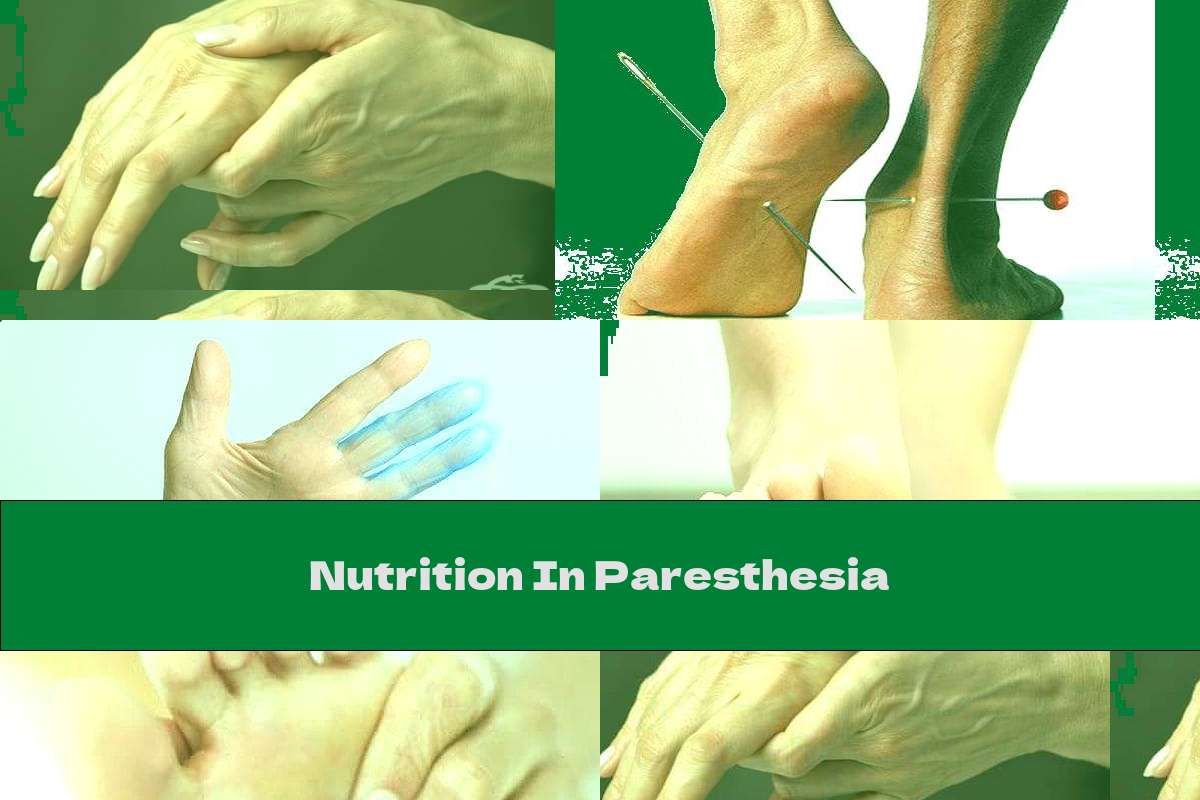Nutrition In Paresthesia
 Author: Maryam Ayres
Time for reading: ~2
minutes
Last Updated:
August 08, 2022
Author: Maryam Ayres
Time for reading: ~2
minutes
Last Updated:
August 08, 2022

CHAPTERS (Table Of Contents)
In this article, learn more about Nutrition In Paresthesia. Nutrition in paresthesia.
Paresthesia is a term used to describe burning, tingling, tingling in the body, characteristic mainly of the limbs (but also felt in other parts).
Often the feeling occurs suddenly and is the most painless form of the disease. Probably every person has experienced tingling when sitting in one position for a long time (with crossed legs, for example). In such cases, the muscles and nerves are compressed, the blood flow is hindered. This is the reason for the tingling. When the pressure drops, the unpleasant feeling disappears.
Chronic paresthesia, however, does not go away as quickly as temporary, and often causes much more unpleasant feelings.
Temporary tingling can occur in any person, and with age the risk of frequency increases. Risk groups of people are those whose work is associated with repeated contraction and relaxation of nerves: office workers, musicians, athletes (in particular, tennis players).
People with type 1 and type 2 diabetes are also more likely to develop paresthesia, as are people with autoimmune and neurological conditions.
Causes of paresthesia
As we have already said, the illness is due to nerve compression. The unpleasant feeling does not always subside when they are released, but remains constant. This is the chronic form of the disease and it is a consequence of:
- trauma or accident involving a damaged nerve;
- stroke or mini-stroke - when the blood circulation to the brain is limited and provokes damage;
- multiple sclerosis - a disease of the central nervous system;
- diabetes - impaired blood sugar levels, which could eventually damage the nerves;
- nerve compression (often of the shoulder, neck or arm) due to trauma or excessive exercise;
- sciatica - inflammation of the sciatic nerve;
- in case of deficiency of some vitamins, especially at low levels of B12, necessary for maintaining the nerves in good condition;
- alcohol abuse;
- taking medicines: for example, some types of chemotherapy that irritate or damage nerves, various antibiotics and contraceptives.
Useful foods for paresthesia
Deficiency of vitamin B12 results in anemia, nerve damage, and as a consequence - paresthesia. If the substance is not supplied to the body, the problem can be permanent.
Products containing B12:- liver (beef, pork, chicken);
- fish (carp, mackerel, sardines, cod, perch);
- meat (rabbit, lamb, beef).
It is important to remember that in most cases paresthesia is a symptom of another disease, so it is mandatory to consult a doctor who will prescribe the appropriate diet for the specific health problem.
Harms food and habits in paresthenia
- it is obligatory to stop the intake of alcoholic beverages (even in minimal quantities), which are the number one enemy of blood vessels;
- smoking cessation;
- to control blood sugar levels - if glucose rises, appropriate medications and diet are prescribed.
Blood sugar-raising products include carbohydrates (bakery products, cereals, some vegetables such as potatoes, carrots and beets, including peas, as well as virtually all fruits).
Rapid and sharp rise in glucose levels can be observed after consumption of: honey, sugar, candy, grapes, bananas , nuts, cheese, meat and fish.
Related Articles
- The Ultimate Guide to Hickory Smoked Bacon in Nutrition and Healthy Eating
- Fruitskewers in Honey Syrup: Nutritional Benefits and Recipes
- The Ultimate Guide to Buffer 500 in Nutrition: Benefits and Usage
- Nutritional Benefits of Fruit Skewers in Honey Syrup: A Delicious and Healthy Recipe
- Nutrition Guide: Fruitskewers in Honey Syrup - Benefits, Recipes, and More